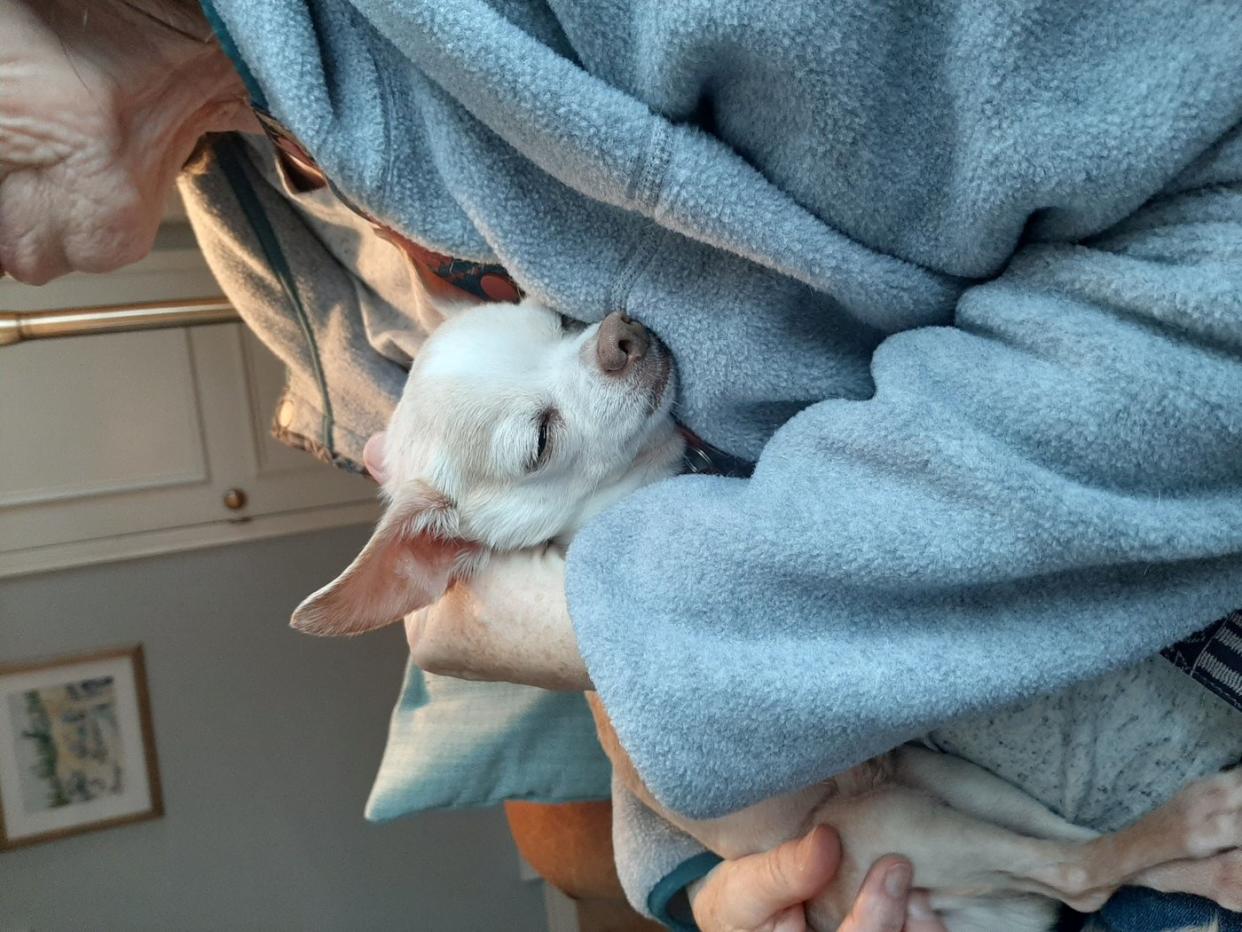Older you, older pooch: ElderDog may be for you

There are many documented benefits of a companion canine as, according to Zoomer’s Moses Znaimer, “pet owners simply live longer.”
Older adults particularly can find the relationship more important later in life than perhaps at any other time. There are even therapeutic dogs and support dogs that can help older adults.
However, you may not have considered your dog in your longer-term plans. What happens when you can’t fulfill the number of walks or the distance your pet needs for daily health? Do you have to give up your fur friend? Are there other options?
Life also throws some surprising curve balls, too. What happens to dogs that are left after an owner dies? What happens to dogs that need to be rehomed?
These and many more questions have, if not answers, at least some guidance, when you go to www.elderdog.ca and look at their resources and online store.
Speaking with ElderDog’s Ardra Cole, you marvel at yet another Canadian who has a “can do” attitude. She saw the need for an organization and so she built it.
Cole moved from Ontario to just outside Lunenburg, N.S., but her reach is national. “The inspiration for ElderDog was the question ‘what happens to older dogs?’ and when my brother suddenly died, Mr. Brown – his dog - came to live with us.
“What happens to older dogs who lose their human? We know old dogs do not do well in shelters. But not everyone wants a puppy.
"Mostly what we do is support people who are living at home with their dog. Medical emergencies or rehabilitation can be a challenge, too. Sometimes there is no family member to step up. We do cry a lot but there are so many uplifting stories that keep us going.
“Dogs who come into our care may need medical attention … it is not for lack of love,” Cole said. “For those on modest or fixed incomes, care, like veterinarian care, is really difficult for people.
“If you want to get involved there are many things you can do. We have mentoring programs if you want to start a local chapter.
“Some volunteers," she added, "just want to walk dogs."
There are 38 “Pawds” or ElderDog Chapters across Canada, however, there is not one in Sudbury. Perhaps it is time.
ElderDog Canada is a national, registered charitable organization dedicated to aging people and dogs and the important connection they enjoy.
Its purposes feel much broader but, fundamentally, it's “dog care support for seniors”. ElderDog volunteers visit seniors at home and help with basic dog care activities. These supports can include:
- Assisting seniors with exercising their dogs.
- Delivering or picking up dog food from a grocery or pet store when you can no longer drive.
- Providing light tasks associated with animal hygiene and grooming, including brushing or bathing or nails.
- Transportation to and from a vet or groomer.
This is, of course, not an exhaustive list. Volunteers involved in dog care support older adults with all sorts of dog care issues so that they can stay together as long as possible. These activities are guaranteed to make a difference to both people and pets.
Some volunteers even provide a short-term, or temporary, foster home for a dog whose human companion is temporarily hospitalized.
Sometimes, a dog could be left homeless because her or his human companion must relocate to a non-pet-friendly residence – even with a family member who does not want the dog in their house - or a long-term care facility.
Volunteers may even provide permanent homes for ElderDog canines who have “lost a human companion due to relocation, illness, or death,” states the ElderDog website.
The Local Journalism Initiative is made possible through funding from the federal government.
sud.editorial@sunmedia.ca
X: @SudburyStar
Hugh Kruzel, Local Journalism Initiative Reporter, The Sudbury Star


